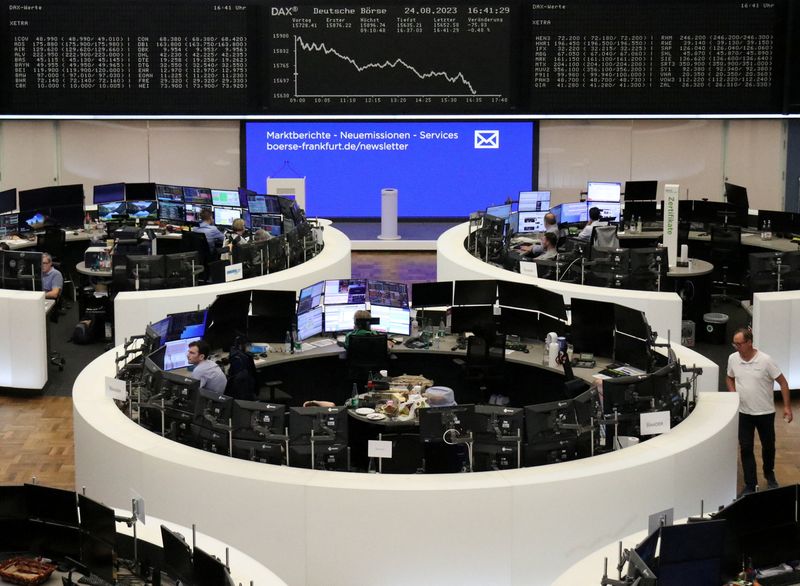A look at the day ahead in European and global markets from Wayne Cole
Asian stocks have extended last week's rally, led by China shares, amid talk that all of Beijing's small policy steps might actually add up to real stimulus at some stage. The next move is expected to be a relaxation of restrictions on property buyers.
There was also much relief at Country Garden's deal with creditors for an extension on onshore debt payments worth 3.9 billion yuan ($537 million). As a result, Chinese blue chips are up another 1.2% on top of last week's 2.2% rally.
Japanese shares have also been doing well, with the Topix marking a 33-year high in the wake of data showing recurring profits at Japanese companies hit a record in the second quarter. Companies are holding an astonishing 555 trillion yen ($3.80 trillion) of earnings in reserve, which is more than the entire 447 trillion market capitalisation of the Topix.
That's one reason the Topix trades at a lowly PE ratio of just 14, compared with 23 for the S&P 500 and 29.5 for the Nasdaq.
Equities were still celebrating the July U.S. payrolls report which seemed to have something for everyone.
The stand-out feature of the household survey was the huge 736,000 jump in the workforce, which swallowed up a gain of 222,000 in employment and pushed the jobless rate higher.
That provided hope that an expansion in labour supply could ease wage pressures even while hiring stays strong, a true goldilocks scenario for the Fed.
Accordingly, futures now imply a 93% chance of no hike this month, and around 63% that the tightening cycle is over. The market also foresees 107 basis points of easing next year, up from around 90 basis points early last week.
Oddly, though, Treasuries still sold off on Friday with longer-term yields popping higher as the curve bear-steepened. Cash Treasuries are closed today but futures are down another 5 ticks, which might be the market cheapening debt ahead of a wave of corporate issuance this week.
There may also be some sticker shock over the budget deficit which, the Washington Post notes this morning, is projected to hit $2 trillion for the year to end-September, and that is with a resilient economy.
Most analysts expect the economy to slow into 2024 and unemployment to rise, so the risk must be for an even larger deficit in 2023/24. And, of course, the Fed is no longer a buyer but a seller of the debt, leaving the market to absorb an awful lot of new paper in coming months.
If the Japanese or Chinese central banks choose now to sell some of their Treasuries to fund dollar intervention, things could get really ugly.
Key developments that could influence markets on Monday:
- Speeches by ECB President Christine Lagarde and board members Frank Elderson, Philip Lane and Fabio Panetta

- Germany reports trade figures for July
($1 = 146.1600 yen)